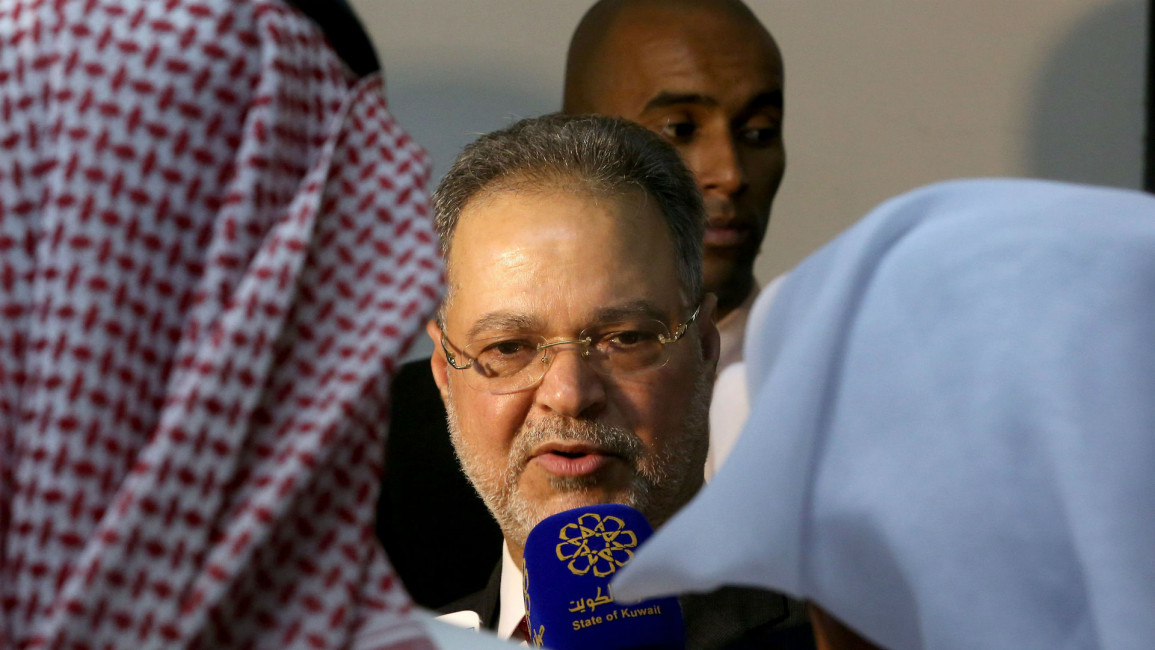Yemen's warring factions meet face to face
A joint meeting was held between the Houthi and government delegations in Kuwait, in which UN envoy Ismail Ould Cheikh Ahmed urged the two parties "to exert all efforts to achieve a sustainable solution for the sake of easing the suffering of Yemenis".
"Any delay, retreat or boycott will take us backward and slow down the solution Yemenis are waiting for," Ould Cheikh Ahmed warned.
Yemeni Foreign Minister Adulmalek al-Mikhlafi confirmed that the government had received a letter from the UN envoy reaffirming a commitment to "references, the talks agenda and the legitimacy" of Hadi and his government, as requested by the delegation.
"We will exercise flexibility and make concessions for the sake of our people and for the sake of peace. We hope that the other side has the same readiness," he said.
Last Tuesday, Mikhlafi - who heads the government delegation at the troubled peace talks in Kuwait - pulled out of the negotiations after accusing the Houthi rebels of failing to abide by UN recommendations.
The government demanded a written pledge from the Houthis and their allies, confirming recognition of the legitimacy of President Abdrabbuh Mansour Hadi and an April 2015 UN Security Council resolution calling for a withdrawal from the capital and other territories seized since September 2014.
The complications pushed faltering Yemeni peace talks to their knees, forcing the Kuwaiti emir to personally intervene.
Sabah urged both sides to continue the discussions to "reach positive results" and safe the country from further war.
Despite a 14-month-old Saudi-led military war on the rebels, the Houthis and their allies still control many of Yemen's most populous regions, including the central and northern highlands and Red Sea coast.
In Yemen itself, twin bombings on Monday claimed by the Islamic State group hit government forces in Aden, killing at least 41 people in the latest of a spate of attacks in the southern city.


![South Sudan famine [AFP] South Sudan famine [AFP]](/sites/default/files/styles/image_330x185/public/media/images/5FED4B35-6177-43AD-844A-5C63373FCF89.jpg?h=d1cb525d&itok=TC12KIPv)
